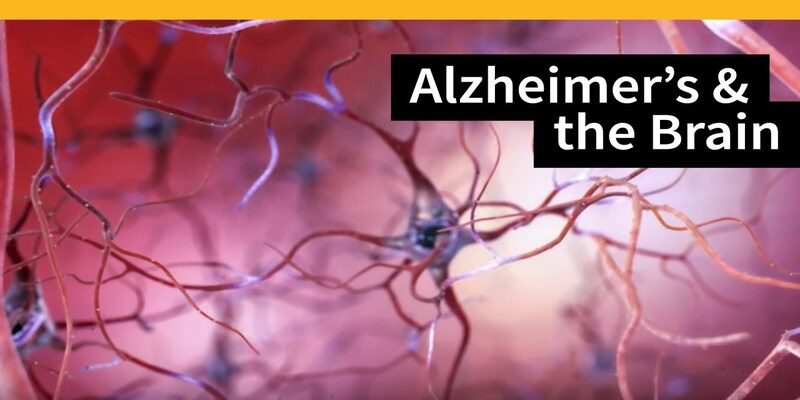
Alzheimer's Disease Overview, Alzheimer's disease causes the majority of cases of Dementia. Psychiatrist Alois Alzheimer, who originally described the condition in the early 20th century, is credited with giving the illness its name. Those with Alzheimer's disease gradually lose their capacity to remember details and focus on tasks. Their ability to understand where they are in time and place and do routine chores on their decline. As the condition worsens, those who are suffering need more significant help. Several drugs and non-drug therapies may slow the progression of Alzheimer's and improve symptoms, but there is currently no cure or way to stop the illness entirely. It is thus all the more critical that those with Alzheimer's get adequate care and support, including nurturing connections and a welcoming atmosphere. Several relatives need aid and help as well.
What Are The Symptoms Of Alzheimer's Disease
Alzheimer's disease is characterized primarily by a progressive and permanent decline in memory. Common symptoms at an early stage include forgetting conversations and recent events. Problems with memory and perhaps other symptoms get more severe as the illness advances. In the early stages of Alzheimer's, the patient may be aware of their memory loss and cognitive disarray. When someone's symptoms deteriorate, it's often the people closest to them who first notice.
Memory And Mental Capacity
As a general rule, most individuals experience a decline in their cognitive ability and memory as they age. As we become older, we lose some of our youthful agility and quickness, making it harder to adapt to novel circumstances. It is generally more challenging to identify and address issues in unfamiliar contexts. However, the accumulated wisdom may be tapped upon to help one maintain orientation, autonomy, and good judgment. Alzheimer's patients are an exception to this rule. Over time, they lose the ability to recall past events. It initially has a more significant impact on short-term memory. This implies that they are amnesic for recent events yet have excellent long-term memory. But old age also causes a decline in long-term memory. Distractions make it harder to focus and keep track of where you are in time and place.
Language And Speech

Sometimes we're all at a loss for words or have temporary difficulty expressing ourselves. It's one thing to have trouble remembering whole sentences but quite another to keep missing words. People with Dementia sometimes struggle to find the correct words to express themselves, and as the disease develops, they may substitute others that make less sense. Because of this, they are often misunderstood. People with Dementia lose their ability to understand the language when they forget the context of words. Because of this, it's becoming tougher to express yourself vocally.
Changes In Behavior And Mental Health
Alzheimer's patients often display unusual personality changes. They may undergo significant personality changes in the future. They can develop abnormal anxiety, mistrust, or passivity levels, or they might even turn hostile. These shifts might occur quickly, leading to wrath, or gradually, resulting in listlessness. The illness might be responsible for such abnormal conduct. However, it is not uncommon for people with the condition to experience emotions like dread, apathy, or aggressiveness. For instance, a person with Alzheimer's disease is often confronted with novel scenarios in which they are expected to act "incorrectly."
What Are The Root Causes Of Alzheimer's?
Over time, those who have Alzheimer's disease lose a progressively more significant number of brain cells. When this occurs, the reason(s) behind it are unclear. Alzheimer's patients have been shown to have lower-than-normal levels of acetylcholine, a crucial chemical messenger throughout the brain. Small protein particles (such as plaques) also accumulate in their brains. These might potentially lead to the death of nerve cells. Yet, the root of Alzheimer's disease remains a mystery. There are possibly several contributing elements.
Getting A Diagnosis

Alzheimer's disease is notoriously difficult to diagnose because of the gradual deterioration of symptoms. Most individuals chalk up memory loss to being older. It's possible (but not sure) that patients will be unable to detect memory shifts due to the nature of the sickness itself. Alzheimer's disease, however, is not something you should expect just because you're getting older. The most excellent chance of getting the support and treatment you need for Alzheimer's disease, as well as planning for the future, depends on a precise and fast diagnosis. See a doctor if you have concerns about your memory and otherwise fear you may have Dementia. Somebody who knows you well and can provide information about any changes or difficulties they may have seen should accompany you if feasible.
Conclusion
The most prevalent kind of Dementia is Alzheimer's disease. Dementia is a degenerative condition that may affect a person in various ways, from modest memory loss to an inability to hold a conversation or react to their surroundings. Certain regions of the brain responsible for cognition, memory, particularly language are affected by Alzheimer's disease. It may have a devastating effect on one's capacity to function normally.



